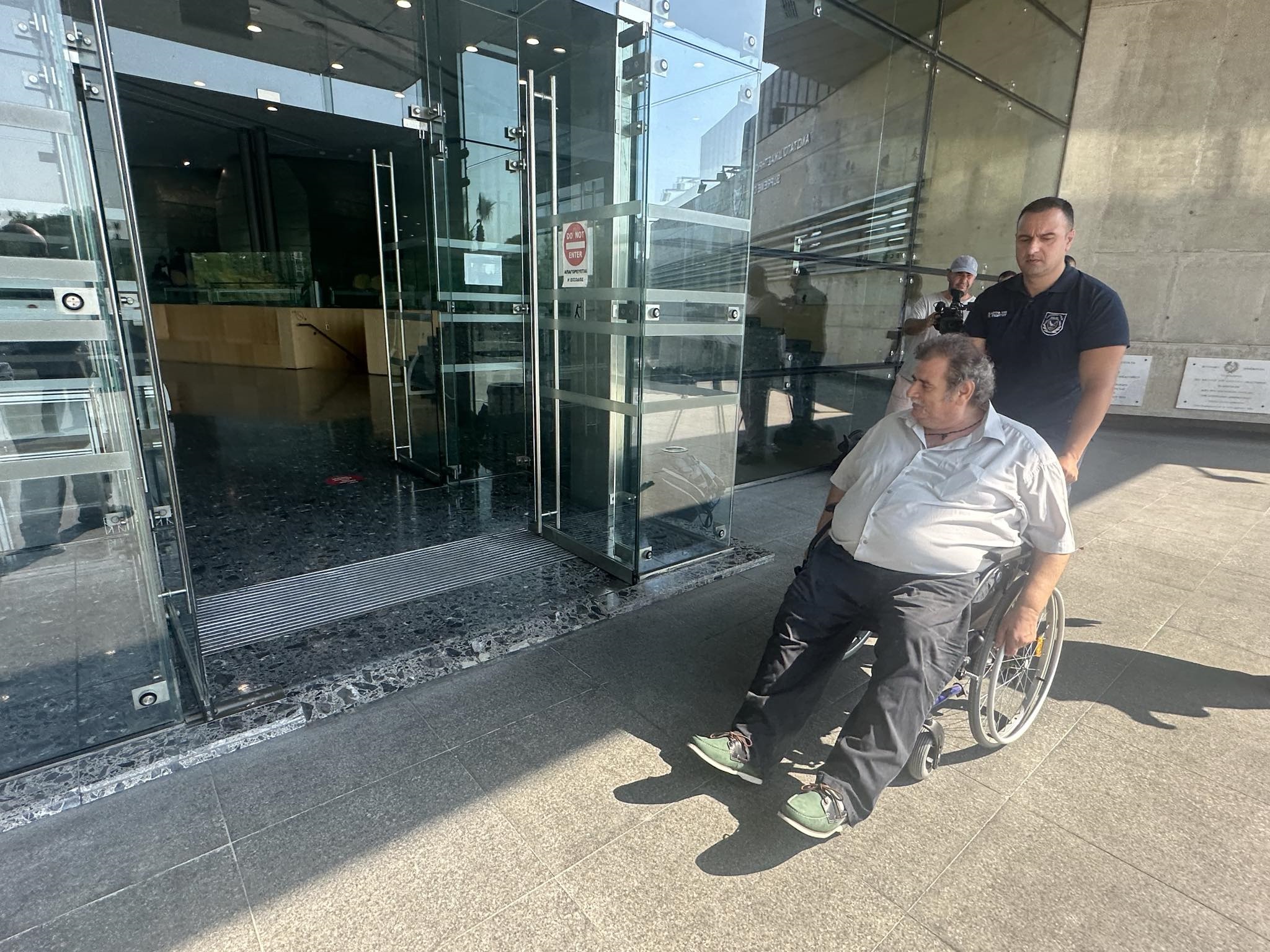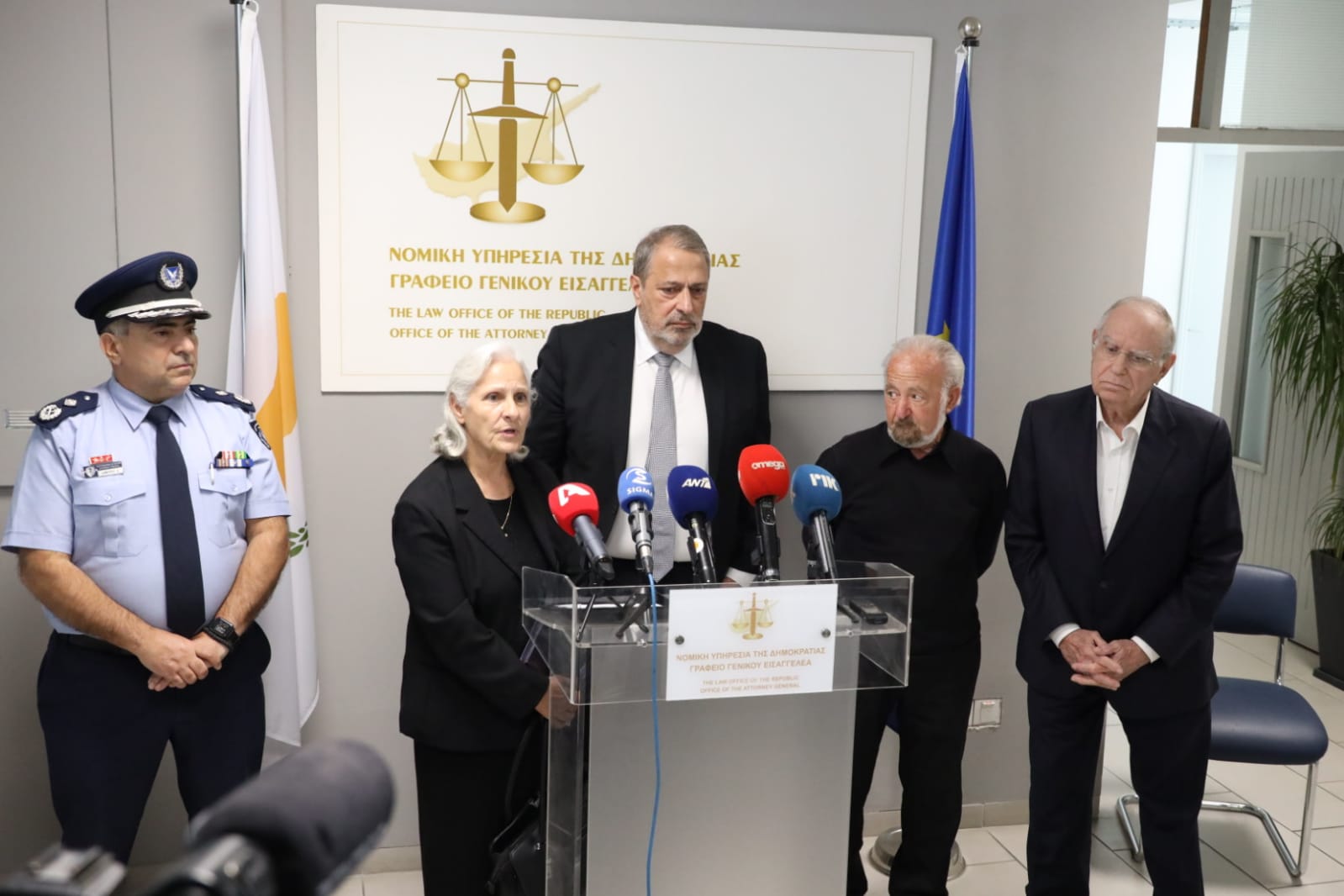The legal service on Thursday decided not to file any criminal charges over the death of conscript Thanasis Nicolaou, who was killed in 2005, his mother Andriana Nicolaou said.
“Provocatively, for 20 years, they have protected those who covered up the crime instead of bringing them to justice,” she told the Cyprus News Agency.
“To this day, the legal service, with the audacity of a thousand monkeys, protects and makes excuses for the position of [former state pathologist Panicos Stavrianos], who issued a report within ten minutes at the scene, before performing an autopsy and before the basic investigations were carried out.”
She added that it was “for this reason that Cyprus was condemned by the European Court of Human Rights for a faulty investigation”.
“Corruption ultimately has no limits, even in the death of an innocent child, with principles and values, who came from the other side of the world and went voluntarily to serve his parents’ homeland. The barrel of corruption and filth, especially from the legal service, has no bottom and no end,” she said.
“Those who murdered my child were amateurs, as has been scientifically proven, but those who covered it up and continue to cover it up even today are professionals. They have committed the most crimes, and continue to commit crimes against society, against justice, and against the Republic of Cyprus.”
She then said she hopes Cypriot society will not remain “with its arms crossed” and added that “only the uprising of the people will bring salvation to this place”.
Asked what she and her family intend to do following the legal service’s decision, she said she will wait to consult her lawyers, but that “we will not leave those who cover up the murder of my son like that”.
Earlier, newspaper Phileleftheros and news website Reporter both wrote that a letter had been sent to Nicolaou’s family to inform them that none of the seven people who were said to be held responsible for his death in a report written by lawyer Thanasis Athanasiou and retired Greek police lieutenant Lambros Pappas would face criminal charges.
Nicolaou’s family had requested that criminal charges be filed against two military officials, four members of the police force, and Stavrianos, based on the fact that the report had found that he had died due to a criminal act and highlighted their responsibility for justice not being served at the time.
They had nonetheless maintained that if the legal service did not acquiesce, they would proceed with private criminal proceedings.
However, the legal service’s letter reportedly read that Pappas and Athanasiou “did not reveal any new facts capable of overturning the legal reasoning of our decision” not to file charges beforehand.
It reportedly added that “there is no trace of testimony about [Stavrianos’] knowledge of there having been a murder or [his] intention to cover for the perpetrators in order to provide them with the opportunity to escape punishment”.

It also made reference to the report itself, in which Pappas and Athanasiou had mentioned the prospect of Stavrianos being criminally implicated.
They said they were “seriously concerned about the possibility that the development of essential events surrounding the case and the magnitude of the acts or omissions of specific people, including Stavrianos, may contain the element of an intention to assist some people to provide them with the opportunity to avoid punishment, resulting in the commission of the offence of complicity”.
However, they added, “we have not identified such evidence of such form and intensity which would be capable of demonstrating this possibility”
Later, the legal service criticised the report’s conclusion.
It said that “the offences attributed to Stavrianos are based exclusively on the assumption that the cause of death is due to a criminal act and consequently, it is suggested that he committed perjury, issued a false death certificate, and committed other related offences, having given as an undisputed fact that on the one hand, there was a criminal act, and on the other that [Stavrianos] had knowledge of it”.
Therefore, it said, “we wonder how they came to the conclusion that all the evidence reveals a serious possibility” that Stavrianos committed crimes in the aftermath of Nicolaou’s death, “since they themselves state that there is no evidence of intent or knowledge on his part as an accomplice”.
It also pointed out the fact that in February, the Supreme Court had found that prior to its ruling that Nicolaou had been strangled to death last year, the Limassol district court had made a “legal error” in not allowing Stavrianos to testify during the case.
“Consequently, it follows from this decision that a finding which suffers from illegality, even in a case where it formally remains valid, lacks probative value and cannot be used. Therefore, we disagree with your position that for the purposes of pursuing a criminal case, we could rely on [the Limassol court’s findings],” the legal service said.
Later on Thursday, the Nicolaou family’s lawyer Nicos Clerides said he was “surprised” by the decision.
“I expected that it would not be positive, but not to such an extent,” he said, before going on to say that the legal service’s letter “directly conflicts with the findings of the two investigators”.
“We received today the response from Attorney-General George Savvides. Our request was clear: that he exercise the power he has under the constitution to appoint independent criminal prosecutors. That request has been rejected,” he said.
He said that Savvides’ position “is not a simple refusal to do that, but a position that more generally, no criminal offence was established based on the testimony which would justify the filing of criminal prosecutions in general”.
This position, he added, “conflicts directly with the conclusion put forth by the two investigators, whom the state itself appointed, and explicitly states that [the legal service] disagrees with the position of the criminal investigators”.
He said that in refusing to file criminal charges, the Republic of Cyprus has failed in its obligations to the family, and that as such, he is considering applying to the European Court of Human Rights (ECtHR) over the matter.
The letter, he added, “essentially closes the door on us, as I understand it, since it says that criminal prosecution in general is not justified”.
“It essentially closed all the doors on us. This is the message I received from the legal service, for me. It closes all the doors for further action. So, I say, is this how a state governed by law should act?
Stavrianos had ruled in 2005 that Nicolaou, who was found dead under a bridge near the Limassol district village of Alassa, had committed suicide, while his mother Andriana Nicolaou had for nearly two decades campaigned to have Stavrianos’ ruling overturned.
This led to Nicolaou’s bones being exhumed and examined in 2020, with new information coming to light thereafter leading to the conclusion that his death was due to a criminal act and not a suicide.
Last year, the Limassol district court ruled that Nicolaou had been strangled to death, prompting President Nikos Christodoulides to appoint Athanasiou and Pappas to conduct a fresh investigation.
Stavrianos claimed after the Limassol ruling that he had been wronged, appealing it at the Supreme Court on the basis that he had not been allowed to testify in the Limassol case.
The Supreme Court rejected Stavrianos’ appeal, finding that while the Limassol court did make a “legal error” in not allowing Stavrianos to testify, it would “not serve any purpose” to annul the court’s decision “for reasons of public interest and justice”.
His final appeal at the supreme court ended without success in February, and his lawyers are now alleging that he was poorly treated during that hearing.
The Athanasiou-Pappas report was submitted to the government in March, with Andriana Nicolaou having initially requested that it not be sent to the attorney-general’s office.
However, Christodoulides informed her that the report’s submission to the attorney-general’s office is a legally required procedure.
At the time, she said that she did not expect much from the attorney-general’s office.
“The report will be studied by those who stood against us in court,” she said.
She had said then that she intended to proceed with private criminal prosecutions against those named in the report and potentially others not mentioned.
“My child was bullied by certain individuals and murdered because he saw them using drugs in the army. They cannot go unpunished,” she said.







Click here to change your cookie preferences